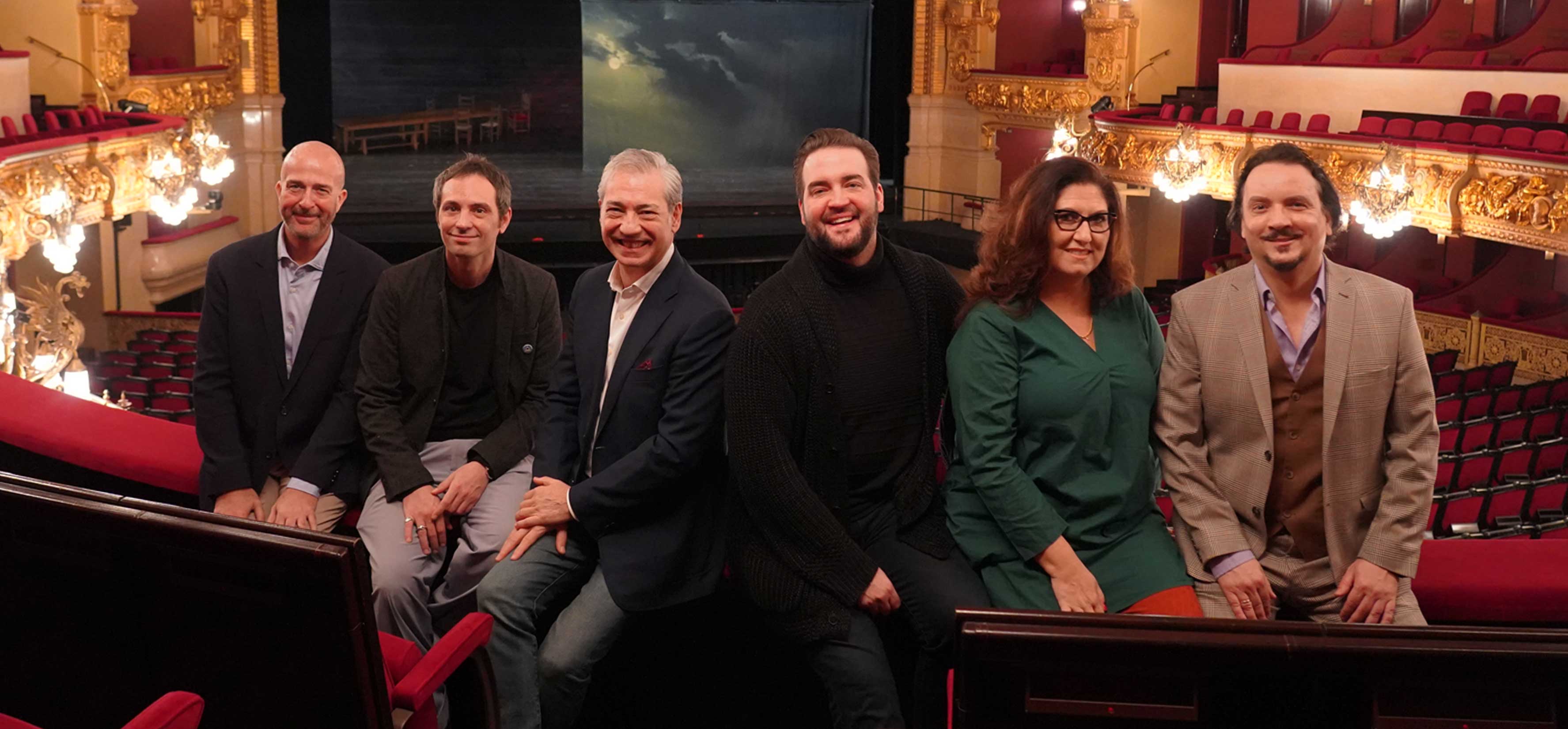
Jean-Claude Auvray's production stands out for its austere and symbolic set design, which reinforces the central themes of the opera — obsession with death, inevitable fate — while also providing space for the singers to give the best of their voices and shine in the most exalted passages of the score.
Verdi’s La forza del destino returns to the Liceu with the direction of Nicola Luisotti and the production of Jean-Claude Auvray, first staged at the theatre during the 2012-2013 season. This opera, inspired by the drama Don Álvaro, o la forza del destino by the Duke of Rivas, will be presented at the Gran Teatre del Liceu from November 9 to 19, with a total of 8 performances. Set between Seville and Italy, the work explores violent passions and an inexorable fate, which Auvray presents with a minimalist set and historical setting, allowing the performers to shine in a true Verdian apotheosis.
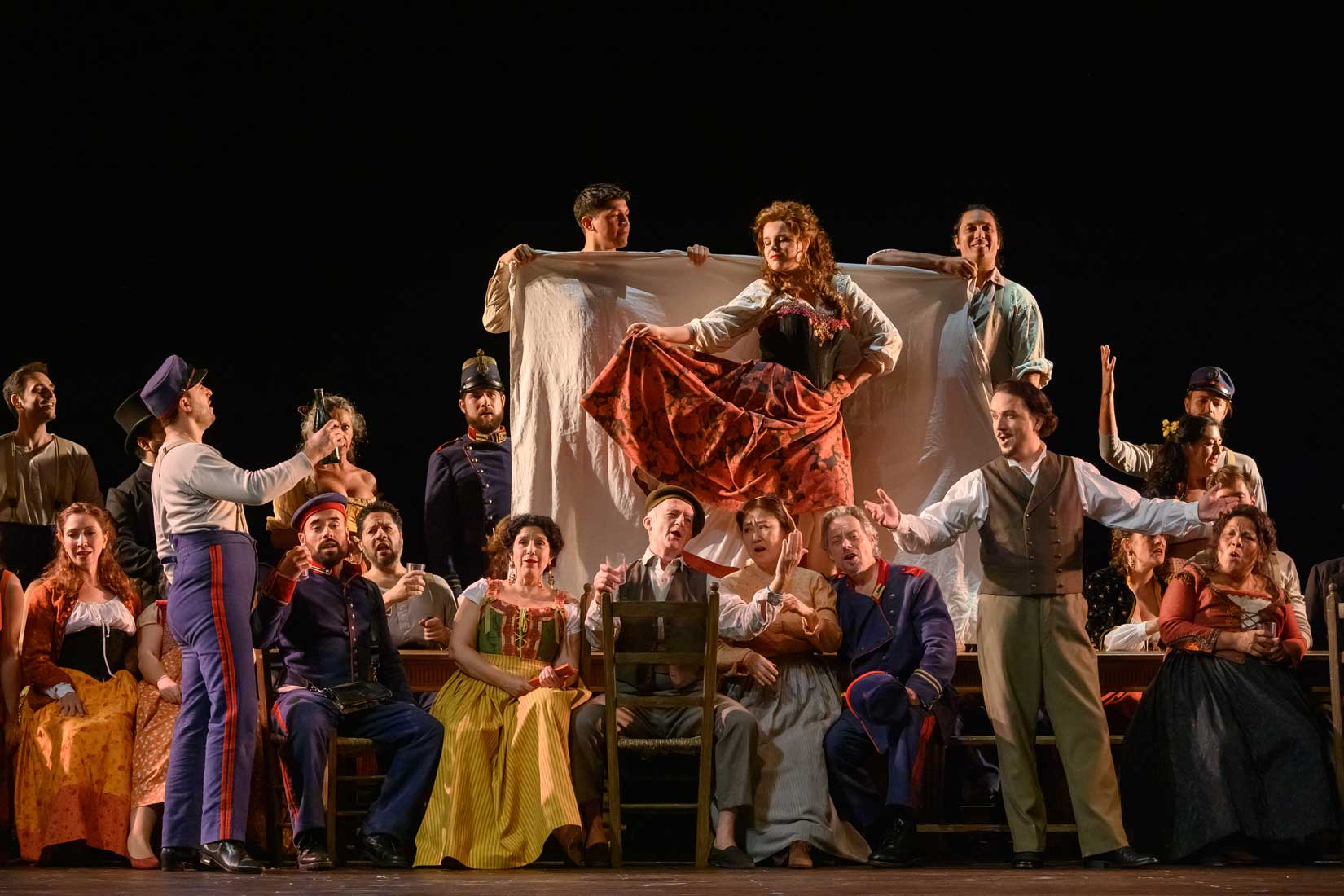
La forza del destino tells the story of a wealthy Indian, Don Álvaro, who plans to flee with a noblewoman from Seville, Leonora, the only daughter of the Marquis of Calatrava. When they are about to escape, the father surprises them and orders Don Álvaro’s arrest. He surrenders, but with the misfortune that the pistol he holds accidentally fires, killing the Marquis. From this moment on, the two lovers will live separated: Don Álvaro will go to war, seeking death as the only way to escape his pain, and Leonora will enter a convent. Meanwhile, Don Carlo, the Marquis’s son and Leonora’s brother, will search for them both to fulfill his father’s last wish: revenge. After years of searching, he will finally find Don Álvaro in Italy and pursue him to Seville. In their final duel, Don Álvaro will kill him, but Don Carlo will still have time to stab his sister when she tries to help him.
In the first version of the opera, just as in the Duke of Rivas’s drama, Don Álvaro also dies at the end. But in the 1869 revision, Verdi made two important changes: he wrote a magnificent overture and saved the life of the protagonist at the end, with Don Álvaro being forgiven by God but condemned to live with a different fate — one of solitude and guilt. These two changes improved the work and made it one of Verdi’s most beloved and mature dramas.
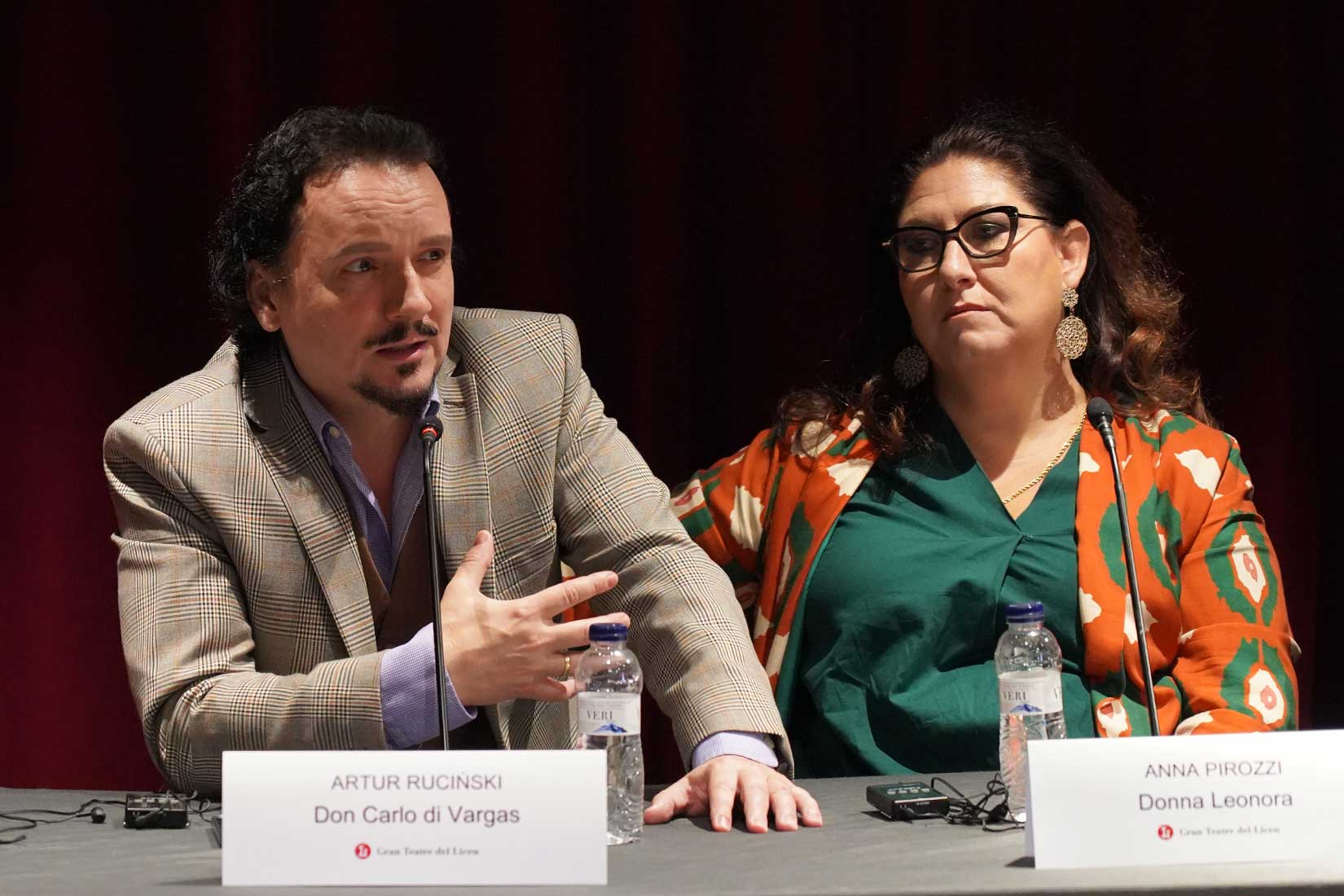
The Production
French director Jean-Claude Auvray presents a version of La forza del destino marked by clarity and simplicity, in line with the theatrical and musical essence Verdi intended to convey. Premiered in 2011 at the Opéra de Paris and co-produced with the Gran Teatre del Liceu — where it was staged during the 2012-2013 season — this production has become one of the most highly regarded internationally for its fidelity to Verdi’s melodrama, highlighting both its dramatic power and musical dimension.
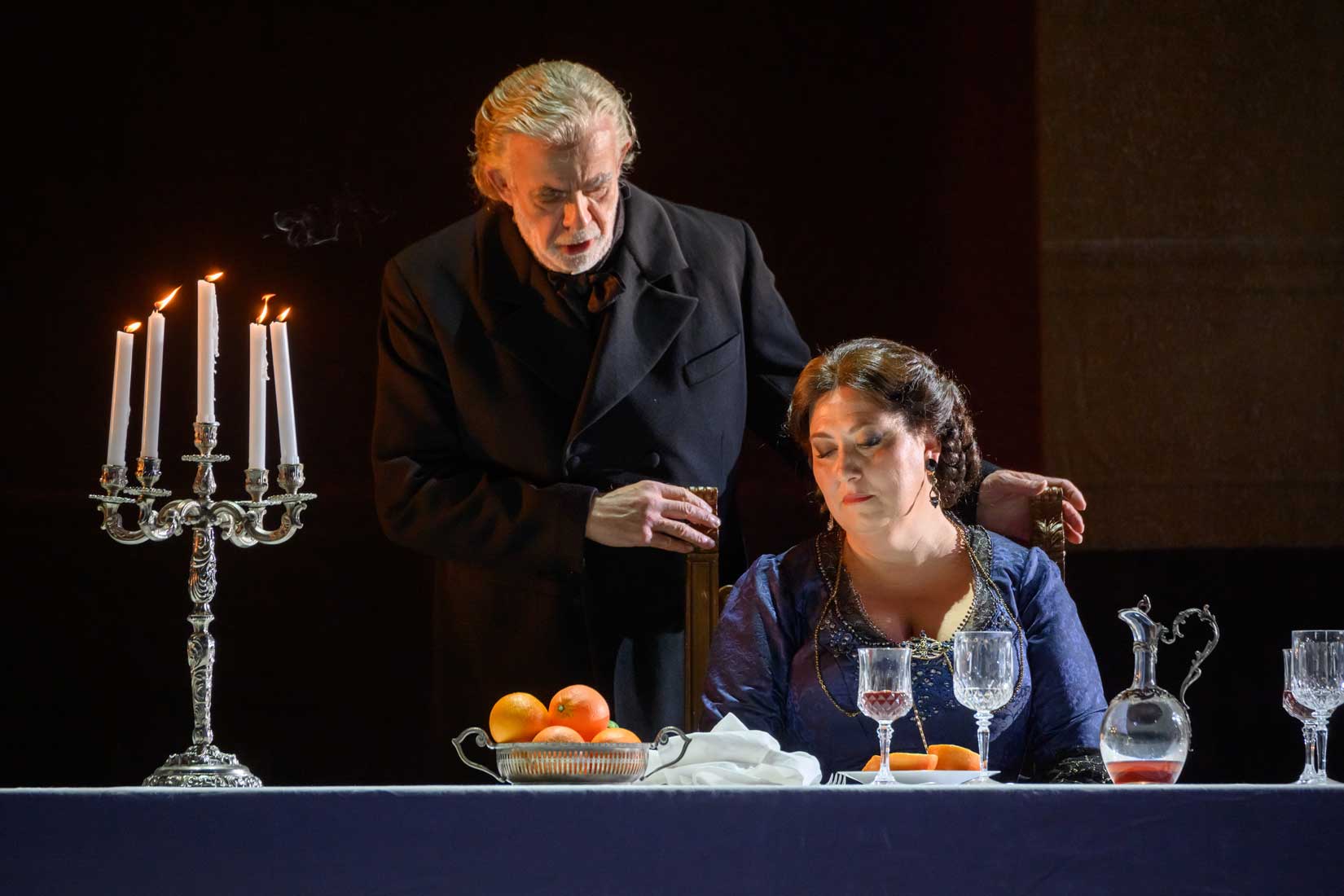
Auvray adapts the story to the period of the Italian unification wars, a century later than the original, and creates a tragic, dark atmosphere through sets and costumes that reflect the turbulent mood of the time. The production places a poetic emphasis on the settings and uses symbolism, such as the fabric drapes, which evoke the characters’ inescapable fate, and the presence of Christ on the cross, marking the key moments of the plot.
The music
Maestro Nicola Luisotti, a renowned Verdi expert, returns to the podium at the Liceu to conduct the orchestra in this production of La forza del destino, with his usual mastery in drawing the maximum performance from the orchestra and making the magnificent orchestral sound required by this work truly shine. La forza del destino demands great technique and precision from its performers, as the emphasis lies not so much on the melodic line, but on the precise connection between the notes and the meaning of the words. Verdi conceived each musical phrase to accompany and amplify the emotions — hatred, love, regret, thirst for vengeance — so the cast includes first-class lyrical and dramatic singers capable of elevating these emotions to their fullest expression.
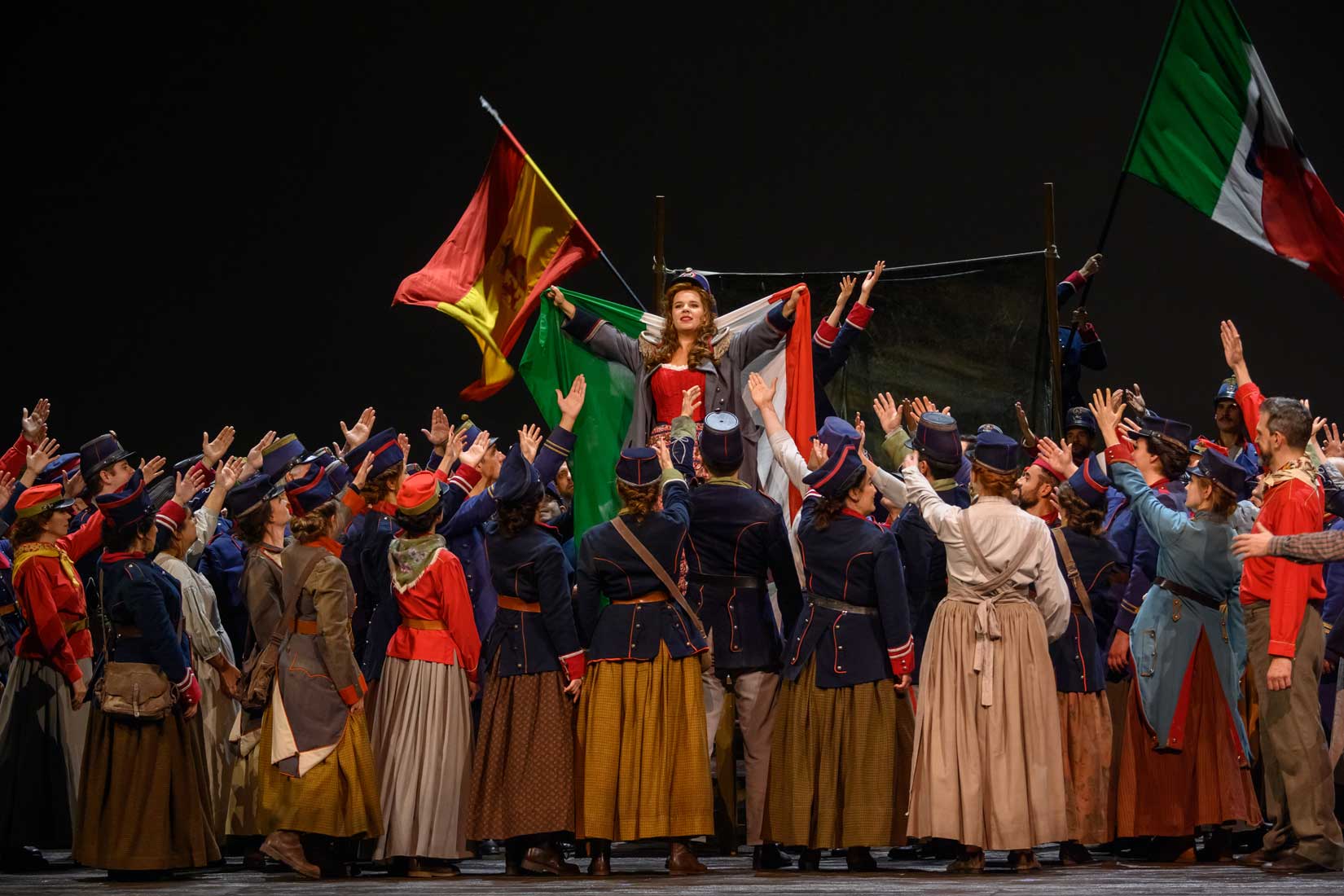
In the role of Leonora, the Liceu audience will enjoy two outstanding lirico-dramatic sopranos: Anna Pirozzi and Saioa Hernández. Don Carlo di Vargas, an emblematic role of Verdi’s antagonist, will be portrayed by baritones Artur Ruciński and Amartüvshin Enkhbat. The role of Don Álvaro will be performed by tenors Brian Jagde and Francesco Pio Galasso, while John Relyea and Giacomo Prestia will bring to life the character of Padre Guardiano, a bass character. Baritone Alejandro López will play the Marquis of Calatrava.
Despite the dramatic tone of the opera, La forza del destino also includes comedic characters such as the gypsy Preziosilla — interpreted by mezzo-sopranos Caterina Piva and Szilvia Vörös — and Fra Melitone, played by Pietro Spagnoli and Luis Cansino. In addition, the chorus plays an essential role in the opera, with striking interventions in collective scenes, such as the festive tavern scenes in the second act and the battlefield in the third act, rounding off the global impact of this great work by Verdi.

